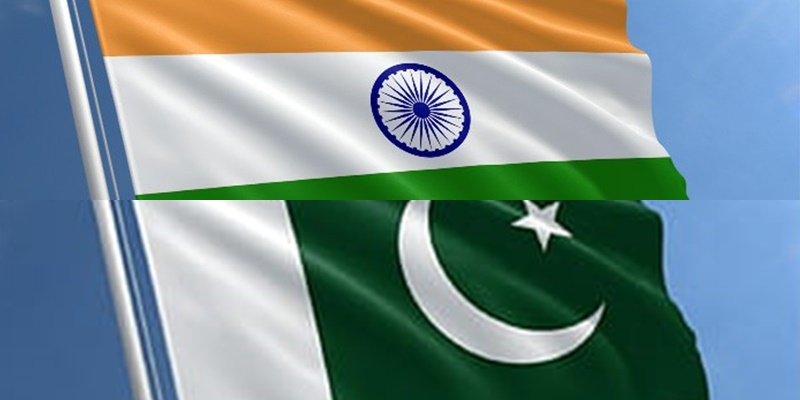I have been amazed at the reaction that my little piece, “Policy shifts not war” published on these pages on Dec 4 has generated especially from the other side of the border. My email inbox was inundated with a wide variety of views and comments, some of which were quite unsavoury and abusive. However, the silver lining is that there were many voices from the other side that called for regional cooperation and finding alternative solutions to mindless jingoism. Most Pakistanis, while disagreeing with my interpretation of partition, expressed their sadness at the Mumbai mayhem and reiterated that a war had to be avoided at all costs.
The media factor has been much analysed over the past few years. As a powerful player in the game, the role of Indian, and to a great extent, Pakistani media industries has been far from satisfactory. As another formal institution with charitable rhetoric, it is emerging as yet another tool for reinforcing conformity, boundaries and the famed refuge of the scoundrels.
Media polls with shady sample sizes are confirming that the ‘public’ in India wants revenge thus isolating the sensible Indian leadership that has tried to undo the legacy of the past. Similarly, the prediction of surgical strikes and eliminating the so-called hideouts for terrorists in Pakistan is a magic bullet that would create a terror-free region. Nothing could be farther from reality, if only the lessons from US misadventures, bloody at that, are kept in view. Aggression and violence breed further violence. The relative degree of failures in Iraq and Afghanistan are rude reminders of how the neo-con, or its ideologically equivalent Hindutva strategy, is bound to create more problems than solving anything.
If anything, the bloated and under-performing state and its agencies should be questioned as have the people of Mumbai who want accountability before anything else. From disaster-preparedness to intelligence failures, the list is long. The process seems hauntingly familiar to what happened in Islamabad a little while ago. The question is where have we landed ourselves after six decades of hard-earned Independence. Was the replacement of the central Raj state with that of native elites, the purpose of the Independence? And, what happened to opportunity, equality and self-realisation that independent peoples are supposed to enjoy. The region is still marked by extreme inequities, castes, sects, tribes, illiteracy and mortality not to mention killing of unborn girls with advanced technological tools.
In such a complicated environment, the list of Indian billionaires, the nuclear weapons and one-upmanship on intimacy with neo-imperialism is a measure for state-success. Surely something is fundamentally wrong somewhere and the elites – the elected in India and the unelected in Pakistan – appear unwilling to address the seriousness of the situation. The greatest of ironies is that despite the ideological and a nationalistic division, all else is shared including the curse of poverty.
Yet, the simplistic solutions, thanks to the mass-scale reach of corporate media, are in wars, counting nuclear warheads and strikes against terror. The jihad factories are nothing but an imperial tool for global dominance. Surprising that both the Indian and Pakistani states want to be allied with global powers and use such intimacy for the protection of the nation state and its flawed ideology. Deep down, both the societies for centuries are nothing but plural, diverse and complex entities where one-state-fits-all formula simply does not work.
Closer to home, the ideal of Pakistan has been under grave threat from the elected and unelected elites, and the extremist forces. The Mumbai tragedy and the daily carnage in Pakistan are reflective of our collective inability to provide citizenship to the vast numbers of ‘subjects’ and to contain oligarchies that exercise and reproduce power in South Asia. After all, Mumbai is also the striking arena of shining India where a billion-dollar house is under construction; and where slums are expanding and the non-locals have been threatened to leave the city until recently.
This is a direction that is dangerous and goes beyond the calls for war, revenge and fixing Pakistan. If only, the wiser and more nuanced sections of mainstream Indian media would understand. Threats will only strengthen the forces in Pakistan that have cherished confrontation and silence the majority that wants an end to mess at home and in the region. All I have to say to my Indian friends is that please do not drown the voices that are looking for long-term solutions. The moderate Pakistanis will also lose out in this hysteria and the beating of war drums. Who will then articulate the need for peace and cooperation? Is that what the linear view of “Pakistan” and “Pakistanis” in India aiming at? Well, we hope not.
As a reader, reminded me yesterday that Mr. Jinnah and the Muslim League had accepted the Cabinet Mission proposals in 1946 that would have created a confederation of three loosely-affiliated regions with a recognizable central government responsible for defence, currency and foreign affairs. The Congress rejected it and Partition assumed an inevitable uncontrollable dynamic.
In a way, the current twist of history cannot be ignored. Today, the Indian leadership and its vast body of intellectuals need to engage with Pakistan’s civilian government and strengthen its domestic position. Aggression will weaken or annihilate it and rob Pakistan of a chance for nurturing democracy after a nine-year long arbitrary rule. And, those who want peace will be marginalized further.
The terrorists would have won the game. There may be chance to scuttle this and the elected governments of India and Pakistan, backed by informed citizenry, need to play their due role.
The writer blogs at razarumi.com and edits two e-zines: Pak Tea House and Lahore Nama. Email: razarumi@gmail .com



